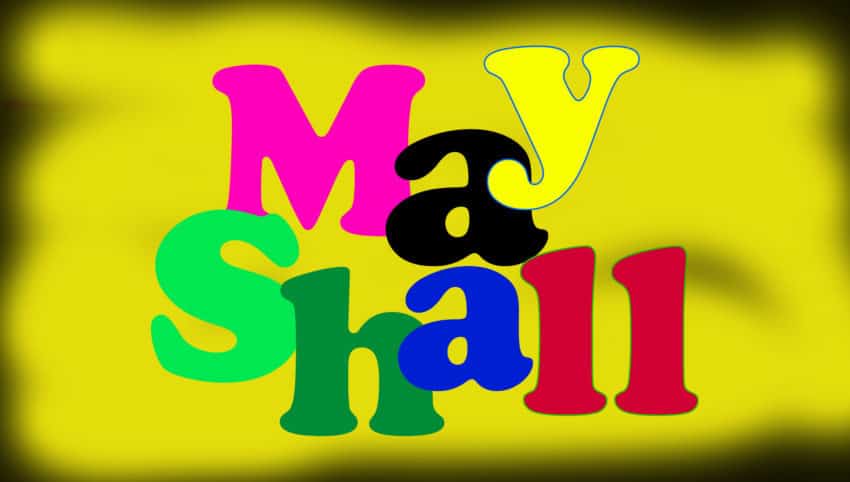Which Word has a Stronger Connotation?
In my opinion, “shall” means serious business. When a person says, “may,” they’re giving you an option as to whether or not you wish to do what they request.
The reason I am doing this editorial based on these two words is because these two words have been used recently regarding an ordinance in the City of Perth Amboy. This ordinance involves a payment or nonpayment of salary for a city employee.
If someone said to me, “You shall be paid this amount of money, I’m reading this as if I’m going to get this amount of money – and that money will be paid to me – no questions asked. If someone said to me “you may” be paid this money, it indicates to me that it’s not a done deal.
So, of course I had to Google the difference between “may” and “shall.” In some cases, the words are interchangeable, but honestly, it made it more confusing. C.M.
So, I’m going to leave it up to you. This is an article on the FAA website: FAA.gov (Federal Aviation Administration): What’s the only word that means mandatory? Here’s what law and policy say about “shall, will, may and must.”
We call “must” and “must not” words of obligation. “Must” is the only word that imposes a legal obligation on your readers to tell them something is mandatory. Also, “must not” are the only words you can use to say something is prohibited. Who says so and why?
Nearly every jurisdiction has held that the word “shall” is confusing because it can also mean “may, will or must.” Legal reference books like the Federal Rules of Civil Procedure no longer use the word “shall.” Even the Supreme Court ruled that when the word “shall” appears in statutes, it means “may.”
Bryan Garner, the legal writing scholar and editor of Black’s Law Dictionary wrote that “In most legal instruments, shall violates the presumption of consistency…which is why shall is among the most heavily litigated words in the English language.”
Those are some of the reasons why these documents compel us to use the word “must” when we mean “mandatory:”
The Federal Register Document Drafting Handbook (Section 3) states “Use ‘must’ instead of ‘shall’ to impose a legal obligation on your reader.”
The Federal Plain Language Guidelines (page 25) (PDF) referred to in the Federal Plain Writing Act of 2010, compel the FAA and every federal department to “use ‘must,’ not ‘shall’” to indicate requirements.
FAA Plain Language Writing Order 1000.36, (page 4) (PDF) says avoid the word “shall” and use “must” to impose requirements, including contracts.
Until recently, law schools taught attorneys that “shall” means “must.” That’s why many attorneys and executives think “shall” means “must.” It’s not their fault. The Federal Plain Writing Act and the Federal Plain Language Guidelines only appeared in 2010. And the fact is, even though “must” has come to be the only clear, valid way to express “mandatory,” most parts of the Code of Federal Regulations (CFRs) that govern federal departments still use the word “shall” for that purpose.
With time, laws evolve to reflect new knowledge and standards. During this transition, “must” remains the safe, enlightened choice not only because it imposes clarity on the concept of obligation, but also because it does not contradict any instance of “shall” in the CFRs.” Right now, federal departments go through their documents to replace all the “shalls” with “must.” It’s a big hassle. If you look at page A-2, section q (PDF) of this link, it shows a sample of how a typical federal order describes this shift from “shall” to “must.” Don’t go through this tedious process. If you mean mandatory, write “must.” If you mean prohibited, write “must not.”
What should you say if someone tells you “shall is a perfectly good word?” Always agree with them because they’re correct! But in your next breath, be sure to say “yes, shall is a perfectly good word, but it’s not a perfectly good word of obligation.”
If you’ve got comments or questions about this, please contact:
Dr. Bruce V. Corsino
FAA Plain Language Program Manager
Phone: 202-493-4074
email: bruce.corsino@faa.gov



